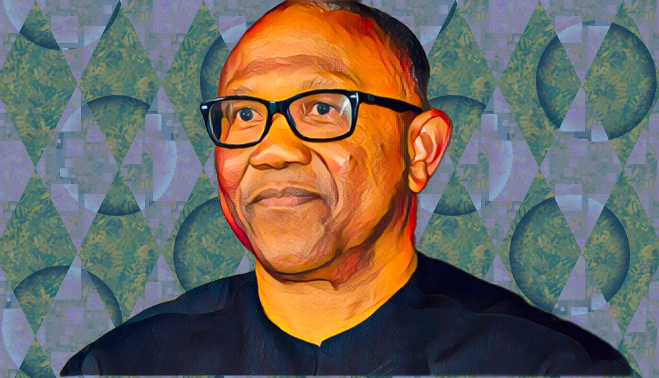Former presidential candidate for the Labour Party, Peter Obi, has strongly denied allegations connecting him to the upcoming nationwide protests scheduled to commence on August 1. Obi, a prominent figure in Nigerian politics, responded to assertions made by Bayo Onanuga, President Bola Tinubu’s Special Adviser on Information and Strategy, through social media.
Onanuga alleged that Obi and his supporters were behind the protests and accused them of attempting to destabilize the country. The aide described the planned demonstrations as a “civilian coup” and warned of potential treason.
In his response, Obi dismissed these claims as “falsehoods” and urged those spreading misinformation to instead focus on helping ordinary Nigerians who are struggling to meet basic needs. He emphasized that addressing Nigeria’s pressing issues, such as food insecurity, education, and healthcare, should take precedence over spreading deceit.
Obi stated, “Rather than fabricating lies, you and your paymasters should listen to the cries of the poor, who cannot afford medicine and are uncertain about their next meal.” He reassured his supporters that principles and genuine concern for the welfare of Nigerians have always driven his political efforts.
Political economist Pat Utomi also addressed the allegations. He stated, “Protests are a legitimate tool of democracy. I have no issue with them and have supported such movements in the past.” Utomi criticized Onanuga’s remarks and underscored the importance of democratic expression.
Dr. Chike Obidigbo, a statesman and industrialist, joined the criticism of Onanuga. He called on President Tinubu to restrain his aide, accusing him of inciting division and hate. Obidigbo argued that Onanuga’s comments could exacerbate Nigeria’s already fragile national cohesion.
Obidigbo also noted, “Onanuga’s attempt to single out the Igbo for hate through his dangerous innuendos is unacceptable.” He urged the president to address the issue promptly to prevent further unrest.
In a similar vein, Dr. Yemi Farounbi, a former Nigerian Ambassador to the Philippines, defended the right to protest against poor governance. Farounbi criticized the government’s attempt to pin the protest on Obi, suggesting that such claims only elevate Obi’s profile unnecessarily.
Farounbi remarked, “Nigerians have the right to protest against bad governance. Tinubu himself participated in protests against previous governments.” He pointed out that protesting is a fundamental democratic right and should not be suppressed.
Minister of Works David Umahi also weighed in, suggesting that Nigerians should focus on increasing productivity rather than staging protests. He argued that improving individual and national productivity is key to addressing economic hardships.
Umahi stated, “Instead of planning protests, we should think about how to improve productivity. Protest alone will not resolve our economic challenges.” He emphasized the need for a collective effort to enhance the nation’s economic performance.
In Lagos, civil society organizations under the Coalition for Transparency and Economic Reforms (COTER) condemned the planned protests, labeling them as a potential repeat of the #EndSARS violence. COTER’s National Coordinator, Adeshina Animashaun, warned that such protests could lead to confrontation and urged security agencies to act swiftly.
Meanwhile, northern groups expressed their support for President Tinubu and condemned the planned protests. They argued that such demonstrations are ill-conceived and counterproductive. The groups, representing the 19 northern states, urged Nigerians to avoid actions that could destabilize the country.
The Kogi State Government also voiced its support for the federal administration, emphasizing ongoing efforts to improve the economy. Kogi’s Commissioner for Information and Communications, Kingsley Fanwo, criticized the planned protests as an attack on the country’s rebuilding efforts and urged citizens to focus on productivity rather than dissent.
Overall, the debate surrounding the planned protests highlights deep divisions and varying perspectives on Nigeria’s current political and economic situation. As the country approaches August 1, the tensions between protestors and government officials remain high, reflecting broader issues of governance and public dissatisfaction.



